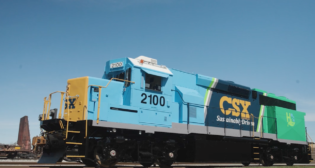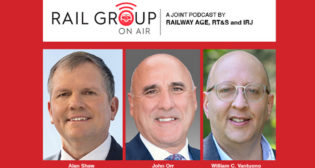
Rail grievance backlog haunts NMB
Written by Frank N. Wilner, Capitol Hill Contributing Editor
Capitol Hill Contributing Editor Frank N. Wilner
An essential task of the National Mediation Board (NMB), which administers the Railway Labor Act (RLA), is to resolve grievances of union-represented railroad employees relating to contract interpretation and workplace discipline.
A backlog of these cases—many unresolved for years—has long bedeviled the NMB, and a recent review of the agency by the Government Accountability Office (GAO), which functions as a non-partisan congressional watchdog over federal agencies, says the problem is worsening.
In a report to Congress dated March 22, 2018, the GAO said the “NMB does not have a plan to address its growing backlog, [which] has more than tripled since 2011, increasing from about 2,400 cases at the end of fiscal year 2011 to more than 8,500 cases at the end of fiscal year 2017.”
While the GAO says the NMB lacks a specific plan to resolve the backlog effectively, the problem may be less the fault of the NMB and more related to the economics of the process.
As the RLA prohibits strikes over so-called minor disputes caused by differing interpretation of collectively bargained railroad labor agreements and employer discipline practices, disputes unresolved in less formal, on-property procedures are elevated to costlier and more time-consuming NMB-directed binding arbitration by which independent neutral arbitrators are hired.
And since the parties do not pay the fees or travel expenses of the independent neutral arbitrators—some $1.2 million annually that is paid by the federal government—there is incentive to file more grievances.
Moreover, as union officers who file the grievances are elected by their membership, there is an added incentive to avoid on-property settlements and place the blame for adverse decisions on neutral arbitrators. It is also alleged that dissimilar contract interpretation and imposition of employer discipline across the same railroad increases the number of grievances—not unlike when a home plate umpire changes the strike zone during the course of a single baseball game.
Economic reform by which the parties share the costs of formal, binding arbitration is not so simple. Labor unions say that because the RLA prohibits strikes over minor disputes, taxpayer funding of binding arbitration is a “small price to pay” for labor peace. Railroads counter that because unions do not share in the expense of binding arbitration, there is no economic constraint over either the number or quality of grievances filed.
In the airline industry, whose labor-management relations also are governed by the RLA, parties do share the cost of arbitration.
In 2004, former NMB member and Republican Read Van de Water proposed user fees, but she was unable to win a second vote from fellow Republican Edward Fitzmaurice or Democratic member Harry Hoglander. As for the current three NMB members, neither newly arrived Republicans Gerald W. Fauth III nor Kyle Fortson has expressed an opinion on user fees; and Democratic member Linda A. Puchala, a former airline labor officer and NMB member since 2009, has no documented position.
Carriers also advocate consolidating grievances of a similar nature rather than their individual handling. While the NMB lacks statutory authority unilaterally to consolidate cases—in fact, a federal court struck down such an attempt previously—the parties could agree if the NMB were to conduct a conference of interested parties for that purpose. There is no indication that one has been proposed.
NMB senior staff has alleged that a now-discarded compensation system contributed to the backlog; that some arbitrators have a “poor work ethic” that isn’t challenged because the parties choose not to be critical out of an abundance of caution that would prejudice cases; and stingy federal budgets limit funds available for a more fluid arbitration process. There have been instances where the entire formal arbitration process was on hold for months owing to a budget freeze.
A previous reform effort imposed shorter deadlines on arbitrators and prohibited them from accepting new assignments if they miss deadlines. It made available to the parties NMB-employed mediators as an alternative to binding arbitration, and created transparency so that parties could assess the workload of various arbitrators. A pilot project compensated arbitrators with a fixed sum per case to encourage fewer face-to-face hearings and more written submissions.
The reforms did produce positive results, say senior NMB staff and former member Harry Hoglander. Since fiscal year 2015, there was a 13% increase in resolved cases. But the new ones keep marching through the door.
The GAO recommended even tighter deadlines be imposed on arbitrators, and suggested unidentified “methods to motivate carriers, unions and arbitrators” to speed the process.
Click here to download the full report from the GAO website.



